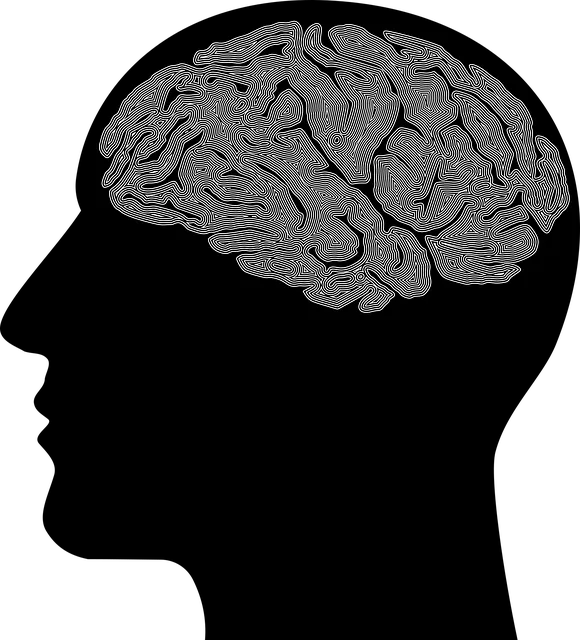Greenwood Village, with its diverse community, highlights the importance of cultural competency in inpatient mental health services provided by Kaiser. This approach ensures tailored care, trust, and open dialogue by understanding unique emotional healing processes across various cultural backgrounds. Kaiser's comprehensive training programs empower staff to bridge cultural gaps, improve patient engagement, and deliver culturally competent care, setting a standard for diverse communities. Their initiatives, including workshops and community outreach, focus on holistic well-being, personalized risk assessments, and continuous learning, ultimately enhancing mental health outcomes.
In today’s diverse healthcare landscape, cultural competency is no longer an option but a necessity. This article explores the vital role of training in enhancing patient outcomes, particularly in mental health care. We delve into case studies like Greenwood Village, showcasing community-based approaches, and examine Kaiser’s network for its inpatient mental health services. Understanding cultural competency is key to improving access and quality of care, with strategies provided for implementing and evaluating effective programs.
- Understanding Cultural Competency in Healthcare: A Necessary Approach
- The Role of Mental Health Inpatient Care in Kaiser's Network
- Greenwood Village: A Case Study on Community Mental Health Services
- Enhancing Patient Outcomes through Cultural Sensitivity Training
- Strategies for Implementing and Evaluating Cultural Competency Programs
Understanding Cultural Competency in Healthcare: A Necessary Approach

Cultural competency in healthcare is a critical aspect that often goes beyond treating physical ailments; it involves understanding and respecting diverse cultural backgrounds, beliefs, and values to ensure effective patient care. In a diverse society like Greenwood Village, where Kaiser’s inpatient mental health services are sought after, recognizing cultural differences can significantly impact the quality of care provided. Every patient has unique emotional healing processes shaped by their cultural context, which healthcare providers need to be aware of.
The absence of cultural competency may lead to miscommunication and misunderstandings between patients and caregivers, hindering progress in Mental Wellness and Mental Health Awareness initiatives. By embracing a culturally competent approach, healthcare professionals can create an inclusive environment that fosters trust, encourages open dialogue, and ultimately improves patient outcomes. This is especially relevant when addressing complex issues like mental health, where sensitivity to cultural norms and practices can be the difference between effective treatment and further marginalization.
The Role of Mental Health Inpatient Care in Kaiser's Network

Inpatient mental health care is a cornerstone of Kaiser’s healthcare network, particularly in its focus on compassionate and culturally competent treatment. Greenwood Village, a key location within the Kaiser system, offers specialized services designed to address a wide range of psychiatric conditions. The integration of compassion cultivation practices into the inpatient setting is a unique aspect that distinguishes Kaiser’s approach. By fostering an environment of empathy and understanding, healthcare providers can better serve patients from diverse backgrounds, ensuring every individual receives care tailored to their cultural needs.
Kaiser’s commitment to mental health awareness extends beyond inpatient facilities through its Community Outreach Program Implementation. This initiative bridges the gap between healthcare services and community resources, enhancing accessibility and promoting holistic well-being. Such programs not only improve patient outcomes but also contribute to building resilient communities where mental health is prioritized and supported.
Greenwood Village: A Case Study on Community Mental Health Services

Greenwood Village, a thriving community with diverse cultural demographics, has been at the forefront of innovative mental health services. This case study explores how Kaiser Permanente, a leading healthcare provider in the region, addressed the unique needs of this population through specialized training programs. The focus is on their approach to enhancing cultural competency among mental health professionals, specifically tailored to the vibrant tapestry of Greenwood Village.
The village’s diverse community presented challenges and opportunities for mental health services. Kaiser recognized the importance of training their staff in effective communication strategies to bridge cultural gaps and foster a sense of inner strength development within the residents. Through workshops and seminars, professionals learned to navigate complex cultural landscapes, improve patient engagement, and conduct comprehensive risk assessments tailored to each individual’s unique circumstances. This case study highlights how such initiatives can significantly impact the delivery of mental health services in diverse communities, ensuring that every resident receives culturally competent care.
Enhancing Patient Outcomes through Cultural Sensitivity Training

At Greenwood Village, Kaiser’s inpatient mental health services recognize the profound impact of cultural sensitivity on patient outcomes. Training programs focused on enhancing cultural competency among healthcare providers are instrumental in creating a welcoming and therapeutic environment for diverse patient populations. By equipping staff with the knowledge and skills to navigate different cultural backgrounds, these initiatives foster effective communication, build trust, and improve overall patient care.
Integrating social skills training, emotional healing processes, and confidence-boosting techniques into cultural sensitivity programs empowers providers to address the unique needs of each individual. This holistic approach ensures that patients from various ethnic, racial, and socio-economic backgrounds receive personalized treatment, ultimately leading to improved mental health outcomes.
Strategies for Implementing and Evaluating Cultural Competency Programs

Implementing cultural competency programs within healthcare institutions like Kaiser in Greenwood Village, especially those with inpatient mental health services, requires a strategic approach. One effective strategy is to involve diverse community members and mental health experts in designing and delivering training modules. This collaborative process ensures that the program aligns with the specific needs and cultural nuances of the local population. By doing so, organizations can address not only broad cultural competency goals but also more niche concerns, such as anxiety relief for diverse communities.
Evaluation is a crucial step to measure the impact and effectiveness of these initiatives. Mental health facilities should employ a combination of qualitative and quantitative methods. This includes pre- and post-training assessments to gauge knowledge gain and attitude shifts among staff. Additionally, patient feedback mechanisms can provide insights into how cultural competency programs influence their experiences and perceived mental illness stigma reduction efforts. Such evaluations not only help identify areas for improvement but also foster a culture of continuous learning and confidence boosting within the healthcare provider team.
Healthcare provider cultural competency training, as demonstrated by Kaiser’s network’s focus on mental health inpatient care and the successful case study of Greenwood Village, is pivotal in enhancing patient outcomes. By implementing sensitivity training and evaluating programs effectively, healthcare organizations can navigate the complex landscape of diverse patient needs. Understanding cultural competency is not just a necessary approach but a vital strategy to ensure inclusive and quality care for all, regardless of background or identity.






